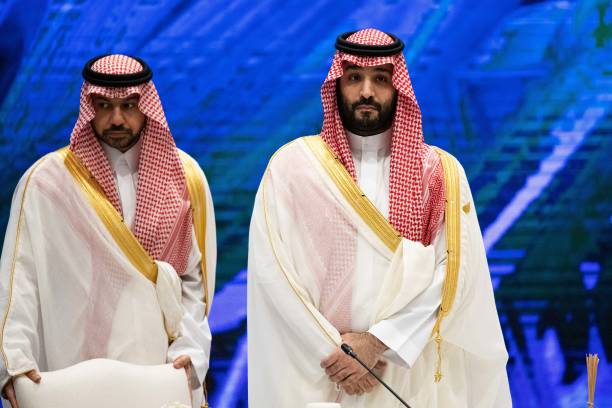
Saudi Crown Prince Condemns Israel's Actions in Gaza as Genocide
Saudi Crown Prince Mohammed bin Salman has issued a stark condemnation of Israel’s military actions in Gaza, labeling them as “genocide.” His remarks, made during a summit of Muslim and Arab leaders, represent some of the strongest criticism from a Saudi official since the conflict began.
At the summit, the Crown Prince also denounced Israeli strikes on Lebanon and Iran, urging Israel to refrain from any military action on Iranian territory. This statement signals a potential warming of ties between Riyadh and Tehran, historically seen as regional adversaries.
The Saudi leadership, along with other summit attendees, reiterated calls for a complete Israeli withdrawal from Gaza and the West Bank. Saudi Arabia’s Foreign Minister, Prince Faisal Bin Farhan Al-Saud, criticized the international community for failing to halt the conflict. He specifically accused Israel of perpetuating starvation within Gaza, stating, “The global community has failed in its responsibility to end the ongoing conflict and curb Israel’s aggression.”
The ongoing war in Gaza was triggered by Hamas’s attack on southern Israel on October 7, 2023. During this assault, hundreds of gunmen infiltrated Israeli territory, resulting in the deaths of approximately 1,200 people, with 251 others taken hostage. In response, Israel launched a large-scale military campaign aimed at dismantling Hamas, which has since led to the deaths of more than 43,400 people in Gaza, according to figures from the Hamas-run health ministry.
A report from the UN’s Human Rights Office highlights the devastating human toll, noting that close to 70% of verified casualties in Gaza over a six-month period have been women and children.
The summit’s participants also condemned what they described as Israel’s “continuous attacks” on UN staff and facilities in Gaza. Last month, Israel’s Knesset passed a bill banning UNRWA, the UN agency responsible for Palestinian refugees, from operating within Israel and East Jerusalem. The agency has been accused by Israeli lawmakers of supporting Hamas, a claim that UNRWA has denied.
The move has drawn criticism from several nations, including the United States and the United Kingdom, who have expressed concerns about its potential impact on the agency’s ability to deliver aid to Gaza.
The summit discussions coincided with the backdrop of former U.S. President Donald Trump’s return to the White House. Gulf leaders, aware of Trump’s close ties with Israel, are optimistic that his negotiation skills and influence could help resolve ongoing regional conflicts.
In Saudi Arabia, Trump enjoys significantly more favorable perceptions than his successor, Joe Biden. However, Trump’s Middle East policies have been polarizing. His administration’s decision to recognize Jerusalem as Israel’s capital and the annexation of the Golan Heights drew widespread criticism from the Muslim world. Conversely, his efforts led to the 2020 Abraham Accords, which normalized relations between Israel and several Arab nations, including the UAE, Bahrain, and Morocco, with Sudan also agreeing to normalization.
A Saudi newspaper editorial recently titled “A New Era of Hope: Trump’s Return and the Promise of Stability” reflects the cautious optimism surrounding his potential role in fostering regional peace.